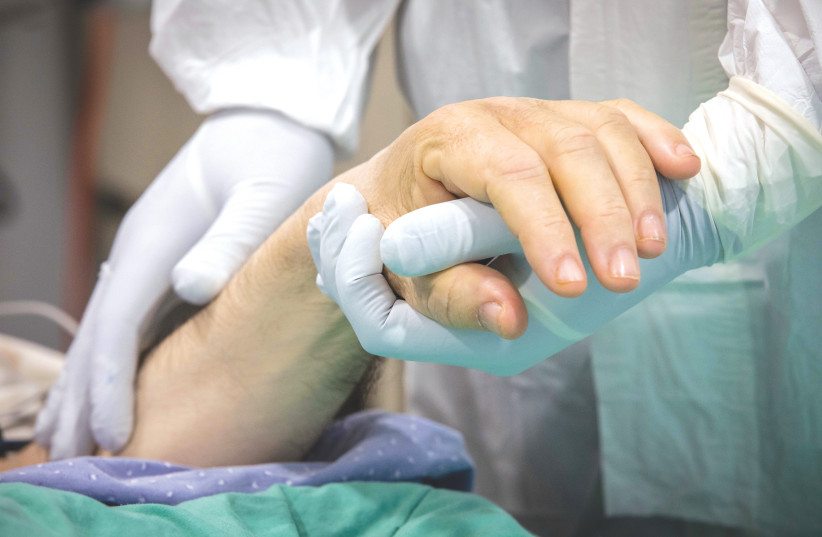Almost one in 10 medical personnel in hospitals and clinics suffered sexual harassment from colleagues or patients last year, according to a recent survey. Health Ministry Director-General Prof. Nachman Ash said at a meeting this week that his goal was “zero tolerance” for the phenomenon. Women experienced more sexual harassment (13%) than men did.
Sexual harassment in the health system was reported in a shocking report in the media over a month ago. In the meeting with hospital and health fund directors on preventing sexual harassment in the workplace, Ash said, “Our work environment is not safe enough in this regard and it harms our main mission, which is medical care. Our goal should be zero sexual harassment.”
Taking action to fix a recurring issue
Ash, a former chief medical officer of the Israel Defense Forces, where sexual harassment is quite common, added, “A lot has been done so far, but we need to make a leap forward on this issue. We have updated the procedure that deals with sexual harassment in medical care, and we are in the complex process of issuing a procedure to prevent sexual harassment among the medical teams.
“We promote customized intervention programs for health organizations, collecting information so that we have a data infrastructure to help us make decisions and deal with the problem. Raising awareness of the issue is important. The media and various social organizations help us with this.
Shani Sharvit, appointed last year as a senior deputy director-general of human capital and administration in the ministry, added, “When I volunteered at centers to help victims of sexual assault and harassment, it dawned on me that this problem is widespread, regardless of the status, profession or education of those involved. In light of the unique characteristics that exist in the health system, we must develop helpful and preventive methods and mechanisms.

“Of the 9% of healthcare workers who said they had been exposed to sexual harassment in the workplace, the victims were 10% of the physicians, 12% of the nursing staff, 8% of other health professionals, and 6% of administrative and maintenance workers. Fully 10.5% said they had been harassed more than once last year.”
Prof. Orna Blondheim, a pediatrician and neonatologist who in the past was director-general of Emek Medical Center in Afula, and who established Me2Med to fight the phenomenon, presented data showing every second female intern reported that she had been sexually harassed, and 40% of all female and male residents (after their first year of hospital internship) reported that they had been sexually harassed.
Women reported more sexual harassment, but 13% of men reported being harassed as well.
The main things in eradicating the problem in the healthcare system is trust among the victims of medical administrators that they will do all they can to protect them; establishing a thorough investigation; and punishment of the perpetrators.
